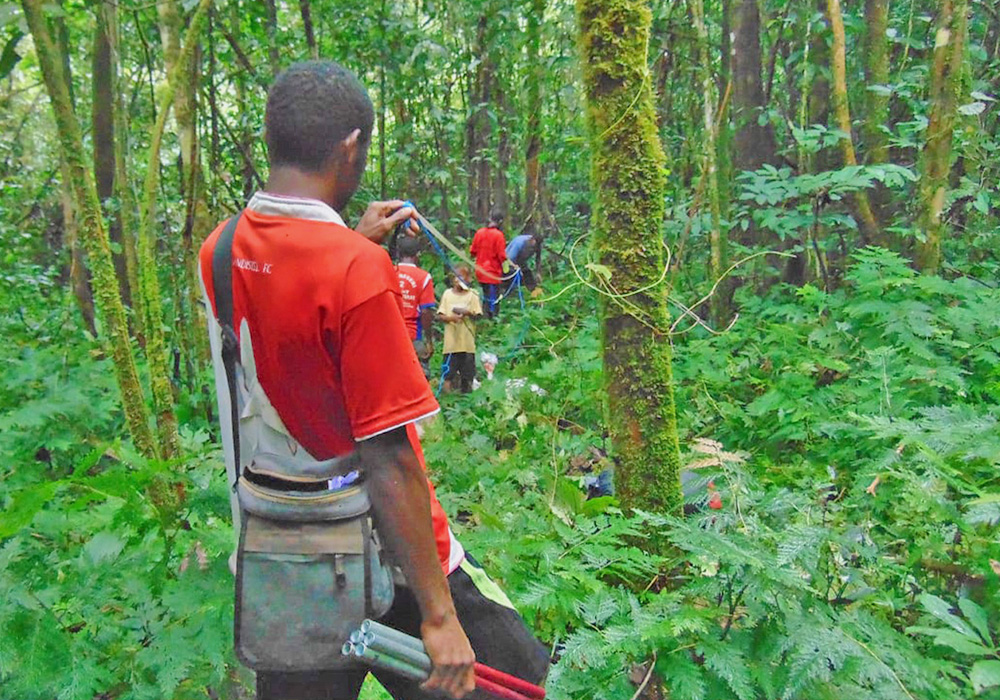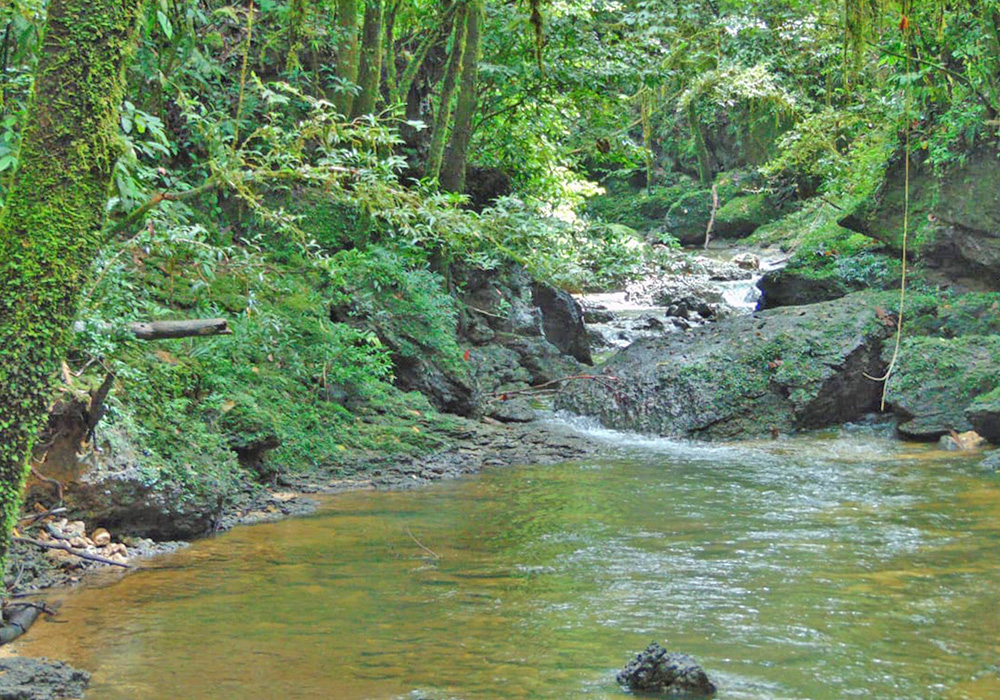
Mapping the potential of "Hutan Adat" by Baho Youth Community. (Edison Wafom)
- admin
- 10 October 2023
- Feature
The Baho Clan: ‘A Model for Indigenous People’s Forests in Papua’
The Marga Baho Indigenous Peoples have sustainably managed their natural resources for generations. Drawing from a well of traditional knowledge, members of the tribe hunt, fish and farm in the forests, rivers, and fields of Maybrat Regency in Southwest Papua Province. Nature also provides them with various herbal remedies; whatever the community needs, the forest provides.
"We have waterfalls, we have clear rivers, we have beautiful birds, good forests that can be used for bird watching, research and all kinds of things,” explains Edison Wafom, a member of the Baho tribe who has been leading the effort for official recognition of their land rights. As he explains, "it's not just the nature that has potential, but also the wisdom of Indigenous Peoples; we have a long civilization that we cannot separate from the forest itself," he added.
Wafom believes this wisdom, and its role in the sustainable management of natural resources, should be officially recognised by the state. As he puts it, “so we can work together to realise this huge potential." With support from Samdhana, this journey for official recognition has taken great strides forward in recent years.

Support for the mapping and proposal process
The process of participatory mapping in the Rae Mana Ro Baho IPs Territory began back in 2017 with support from Samdhana and various other partners.
During the preparatory process, Samdhana provided training to members of the Marga Baho community, coach the administration applications documents and facilitated meetings with government, NGOs, and other communities applying for IPs territorial rights recognitions.
A draft application was submitted to the local government, resulting in a decree (SK) from the Maybrat Regent in 2019 that affirmed their IPs territories recognitions, as supported by the boundary map they presented.
But the Baho did not stop there. They continued their work to obtain the legal status of their IPs forests from the Ministry of Environment and Forestry. This meant that the Indigenous Peoples of Maybrat, which includes the Baho clan, aimed to must have their legal status recognised also at the regional level.
Working alongside with the support from Climate and Land Use Alliance (CLUA), Samdhana assisted in checking the consistency of ethnographical data of the claims map and areas proposed for IP’s forests.
The end of a long road: arriving at official recognition
On 24 November 2020, the Baho community officially submitted their application for the IPs Forest to the Regional Secretary (Sekda) of Maybrat Regency at the Regent's Office Hall. This momentous occasion was witnessed by BPSKL Maluku Papua representing the Ministry of Environment and Forestry and the West Papua Provincial Forestry Service.
"The Maybrat [Regency] Government is committed to legalising all Customary Forests belonging to the Baho Clan and other clans so that their ownership status is valid in the eyes of the national law,” stated Regional Secretary Johny Way in his speech, which confirmed the Baho clan’s rights to their land. He continued by expressing hopes that this official recognition would “become a model for customary forests in Papua in general."
Looking to the future
Samdhana continues to support Edison Wafom and the Baho clan by opening lines of communication with the government and CSOs who share our concern. Working together with PESONA, Cabang Dinas Kehutanan (CDK) and Wilayah VIII Maybrat, we will continue to advocate for the recognition of Indigenous Peoples' rights.
One of Samdhana's goals is for IPLCs to have land rights for their territories and effective control of the forest; through a combination of independent leadership and organisational support, they will be responsible for their own development and well-being.
To achieve this, Samdhana focuses on facilitating Indigenous Peoples and increasing their capacities, while also collaborating with governments to develop simple regulations that IPLCs will be able to comply with. Samdhana also works with the private sector in developing enterprises to ensure that IPLCs will equally share the benefit from the market relations. In this way, local communities themselves are able to develop and gain economically.
For more information about the Baho clan, read our recent interview with Septinus Edison Wafom on our blog.